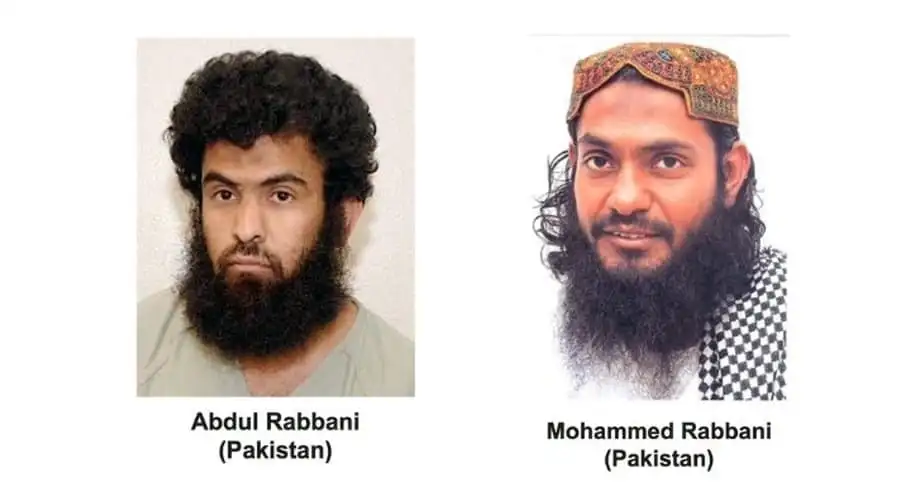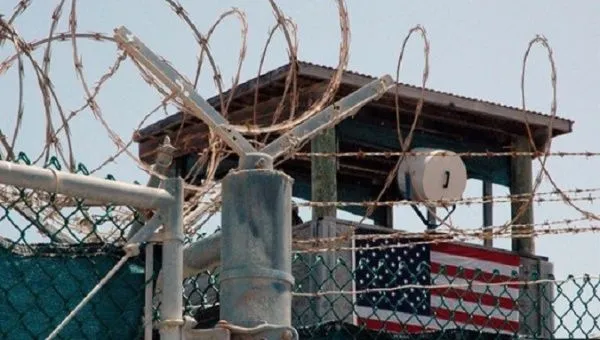
The U.S. military released two brothers on Thursday who had been held as detainees in the war against terrorism for helping to operate safe houses where suspected operatives of Al Qaeda holed up after the Sept. 11, 2001, attacks.
The Pentagon said that Mohammed Ahmed Ghulam Rabbani, 53, and Abdul Rahim Ghulam Rabbani, 55, who were never charged with any crimes during 20 years in U.S. custody, were flown to Pakistan in an arrangement with authorities there.
The brothers were captured by Pakistan’s security services in Karachi in September 2002. They arrived at Guantánamo Bay in 2004 after being kept at a C.I.A.-run detention site in Afghanistan for about 550 days.
They were approved for transfer in 2021. It is unclear why they had remained in prison. In the interim, the Pentagon released two other Pakistani prisoners. Saifullah Paracha, 75, was repatriated in October. Majid Khan, 42, was freed in Belize under a resettlement agreement this month.
The younger Mr. Rabbani, who goes by Ahmed, had distinguished himself at Guantánamo as both a prolific artist and a determined hunger striker who survived on nutritional supplements, sometimes forcibly fed to him through a tube.
Before Ahmed Rabbani’s release, the Pentagon partially lifted a ban on the release of artwork made by prisoners at Guantánamo. His lawyers were eager to learn if he had been allowed to take the more than 100 paintings he had amassed in his years of detention with him on the military cargo plane that flew him and his brother to Pakistan.
Less was known about the older brother. Agnieszka Fryszman, a lawyer who has represented him pro bono since 2006, told a parole board at the time that “he has kept himself busy with simple pursuits. He sweeps and cleans his block, for example, and stays away from conflict.”
The brothers are described in U.S. intelligence documents as Pakistanis by nationality, though they were born and raised in Mecca, Saudi Arabia, and are ethnically Rohingya. Both had families in Karachi and were working as part-time taxi drivers before they were seized.
Because they were fluent in Arabic, they had also found work running errands and aspects of safe houses for the former Qaeda operations chief Khalid Shaikh Mohammed, who is charged in a death-penalty case at Guantánamo as the accused mastermind of the Sept. 11 attacks.
Jessye Norman Rejected These Recordings. Should They Be Released?
In 2016, a U.S. military officer at Guantánamo told a parole-style review board that Ahmed Rabbani “was a shrewd and cunning businessman and chased after the almighty dollar. He did not really care to find out who he was working with, but he stresses that he was working for money, not for a religious cause or an agenda.”
Clive Stafford Smith, a lawyer who has represented both men, said Ahmed Rabbani was “very damaged” from a seven-year hunger strike that began in early 2013 and “has a hard time holding food down. But he is getting better on that front.”
“The irony is that today, and all through his hunger strike, when they were in communal living, he would cook for the other men,” Mr. Stafford Smith said, adding that the younger Mr. Rabbani wants to run a restaurant after he is reunited with his family.
Ahmed Rabbani’s name also came up this week in hearings at Guantánamo over which evidence might be used in the trial of a prisoner who is accused of plotting the Qaeda suicide attack on the U.S.S. Cole destroyer off Yemen on Oct. 12, 2000.
Prosecutors said they may want to use what Mr. Rabbani told interrogators in the earliest days of his detention as hearsay testimony in the case. Defense lawyers said Mr. Rabbani recanted those interrogations as the fruit of torture. There was no discussion of calling him to court this week.
The brothers’ departure reduced the detainee population at Guantánamo Bay to 32 men, all sent there during the years of the George W. Bush administration. Across the years, the United States has held about 780 detainees at the once-sprawling prison complex. At its peak, in 2003, the military held 680 prisoners there at one time.
In a statement announcing the release, the Pentagon thanked “the government of Pakistan and other partners to support ongoing U.S. efforts focused on responsibly reducing the detainee population and ultimately closing the Guantánamo Bay facility.”
Of those who remain, 18 have been provisionally approved for release or transfer, if the United States can reach an agreement with a country willing to take them in. Several of them could be repatriated, including men from Algeria, Tunisia and Saudi Arabia. But the majority, mostly Yemenis, need a new nation to receive them because Yemen, in the midst of a civil war, is considered too unstable and violent to monitor their activities and help them reintegrate into society.
























